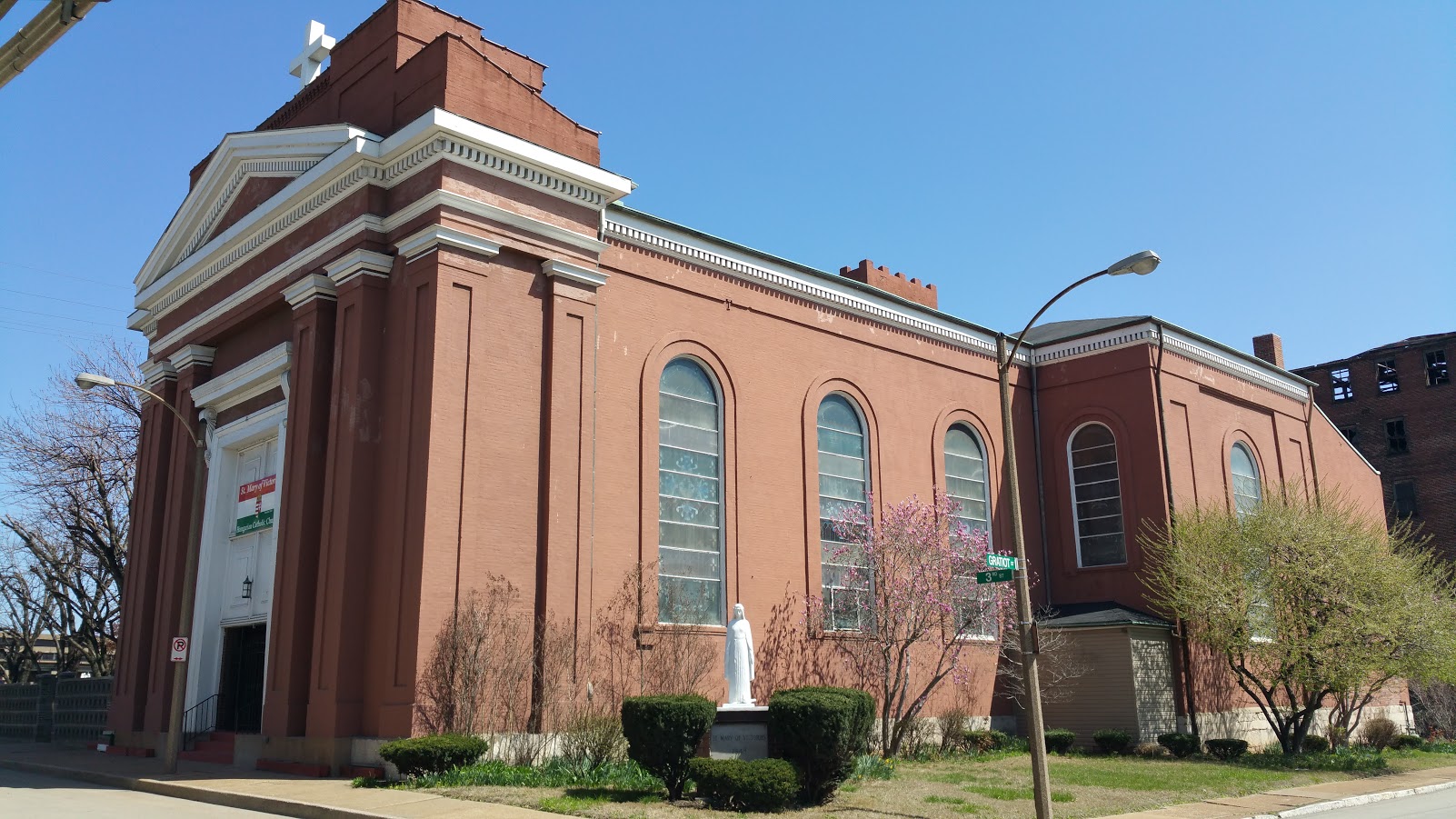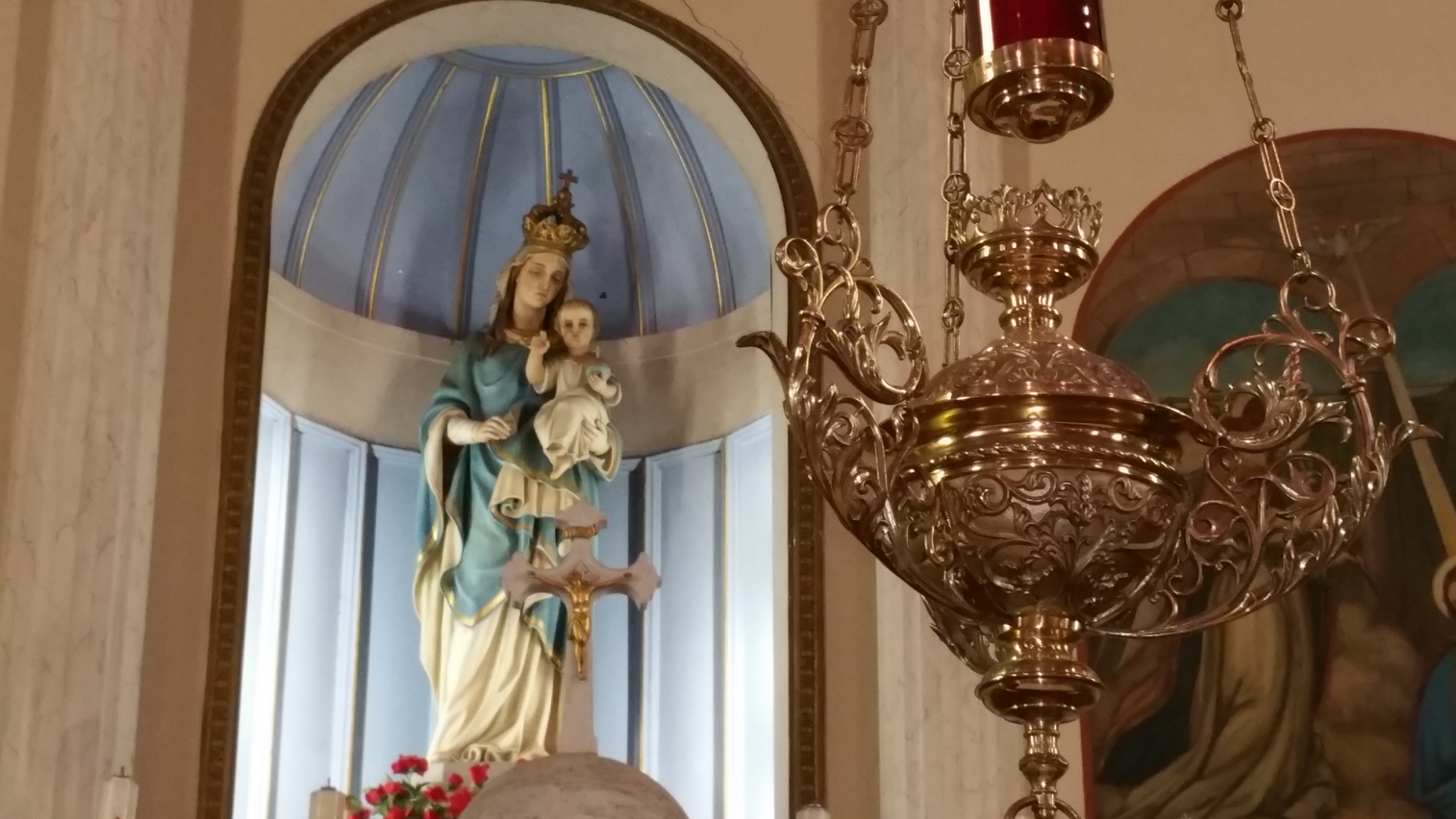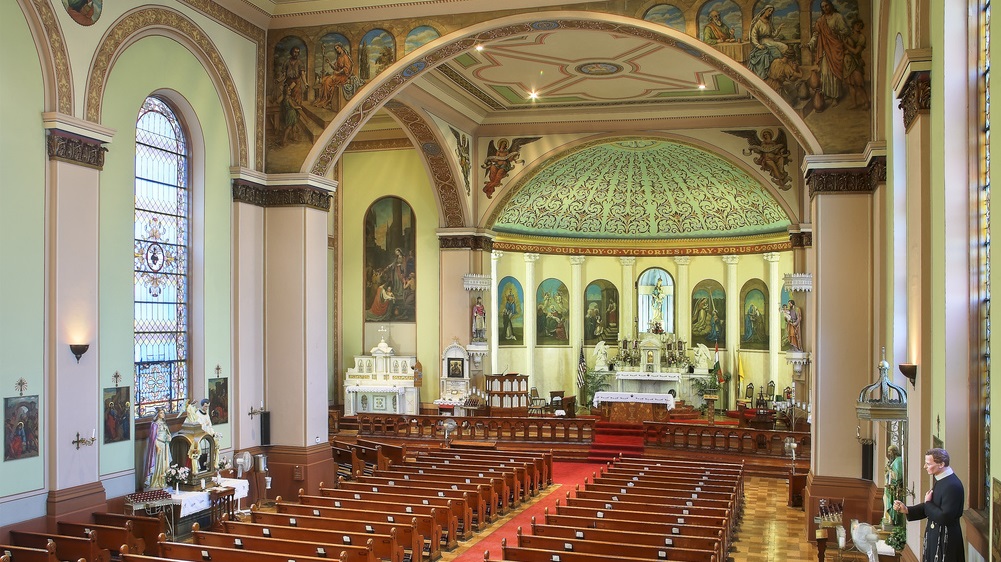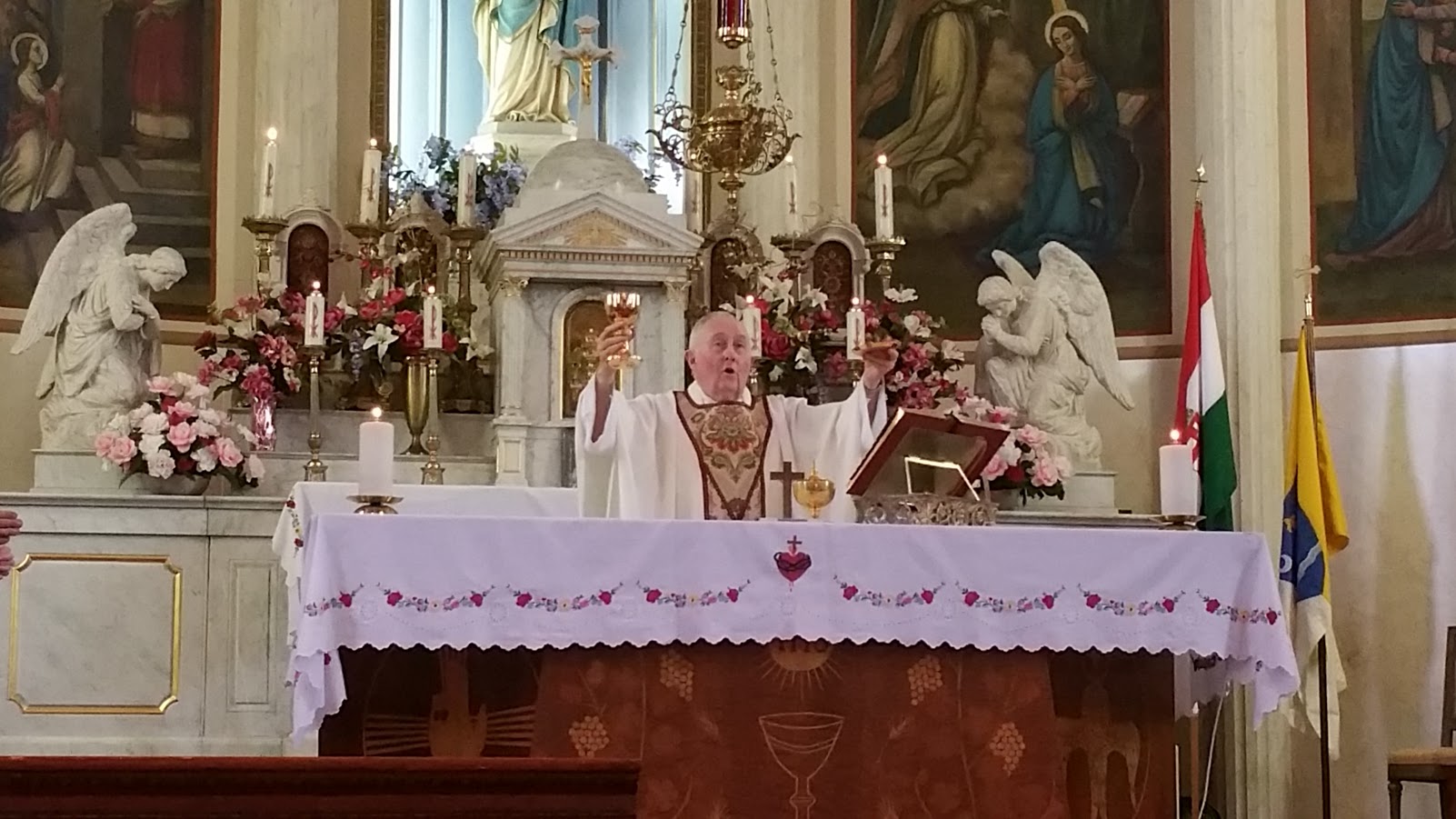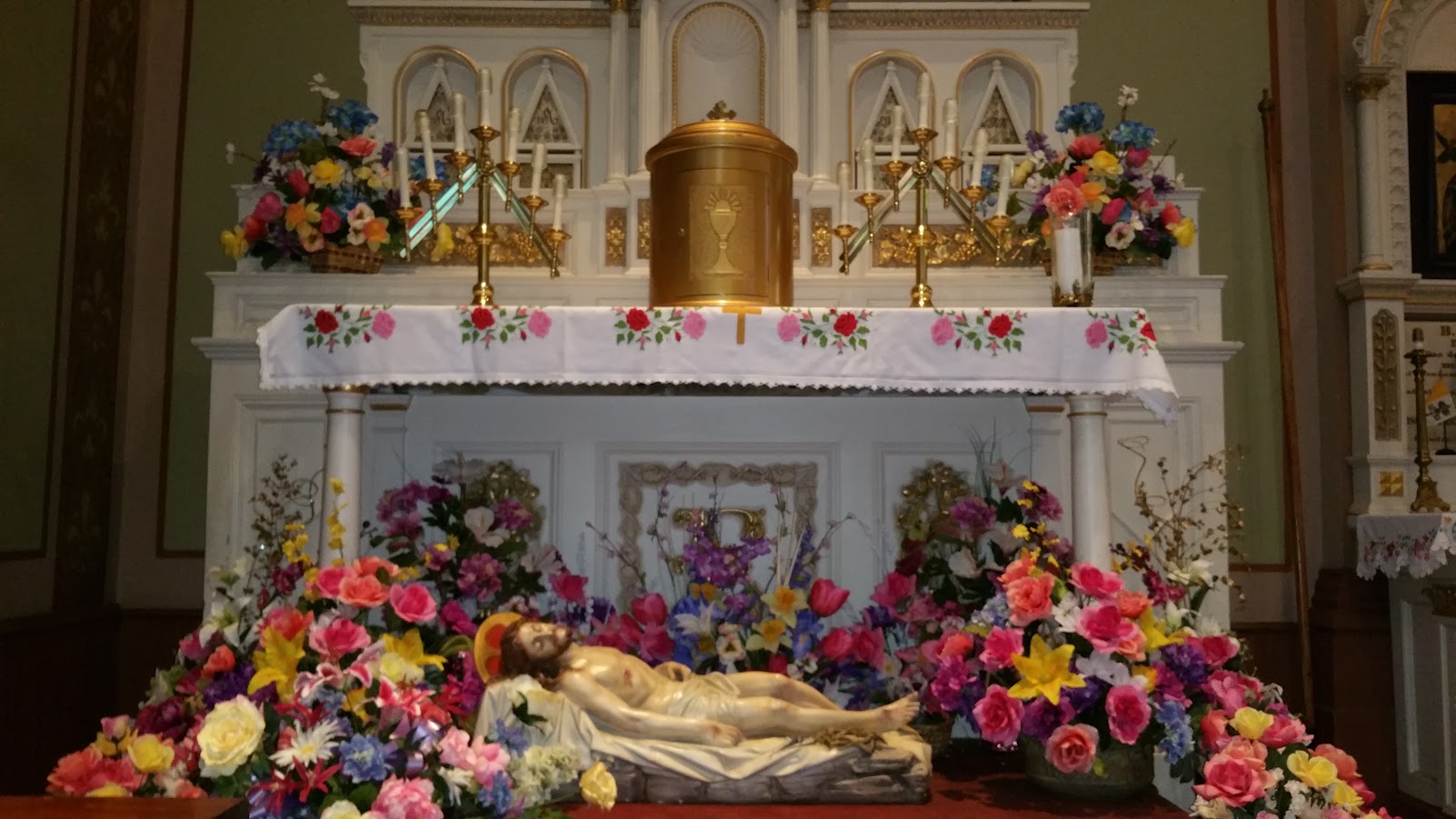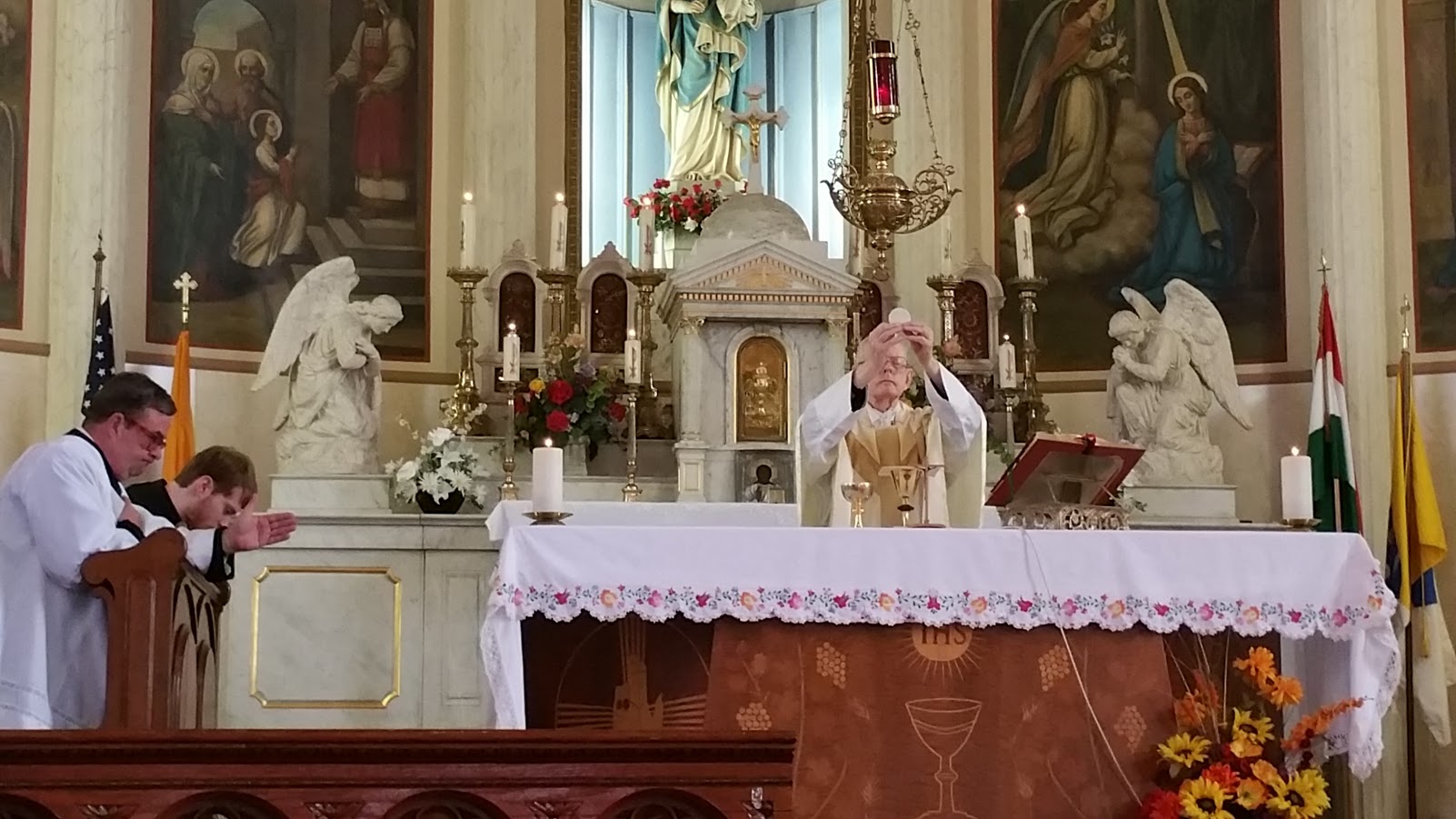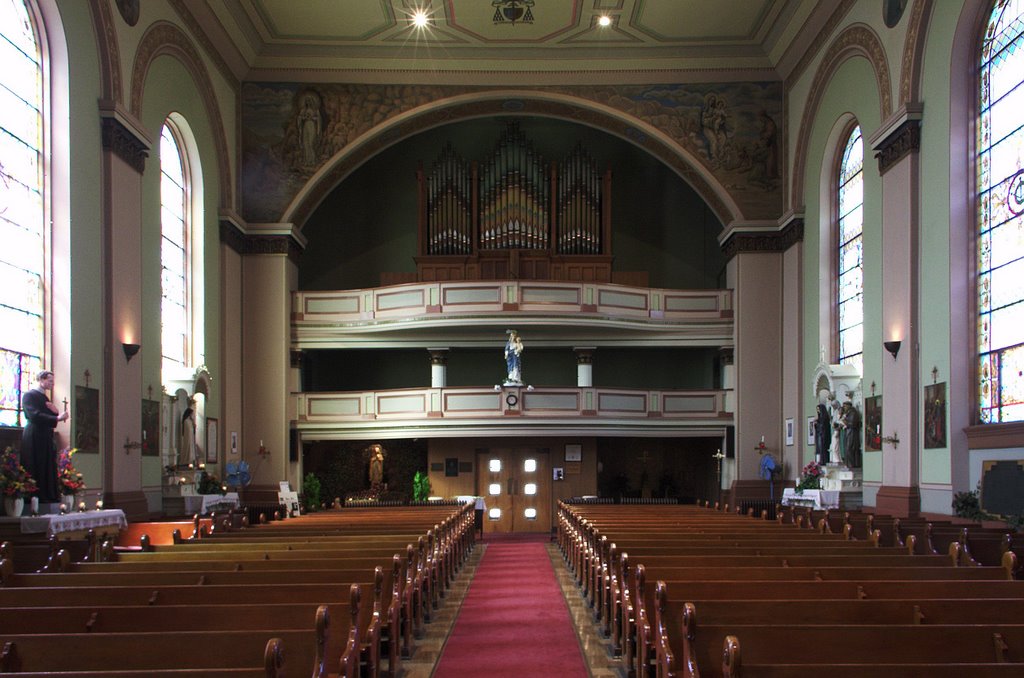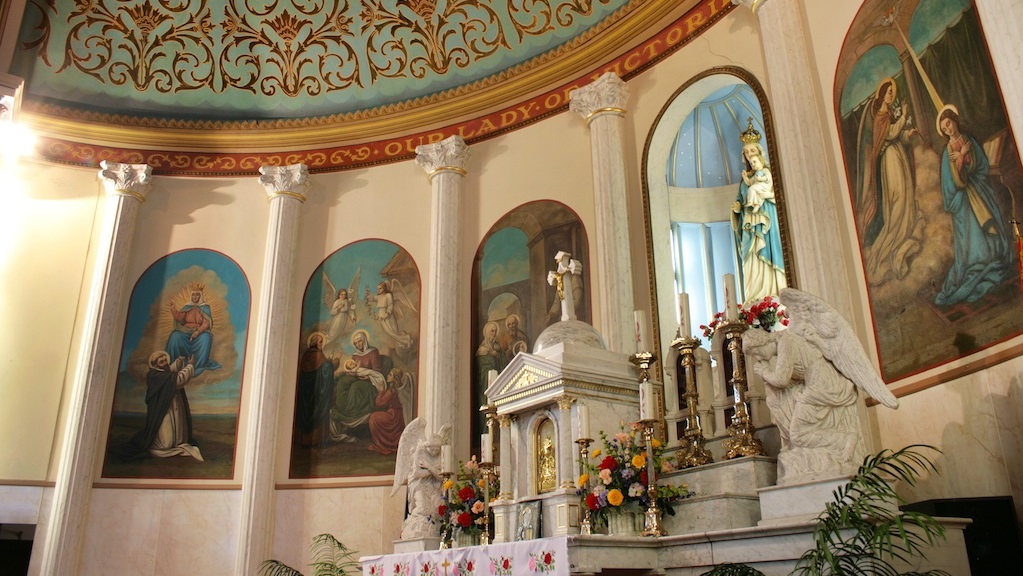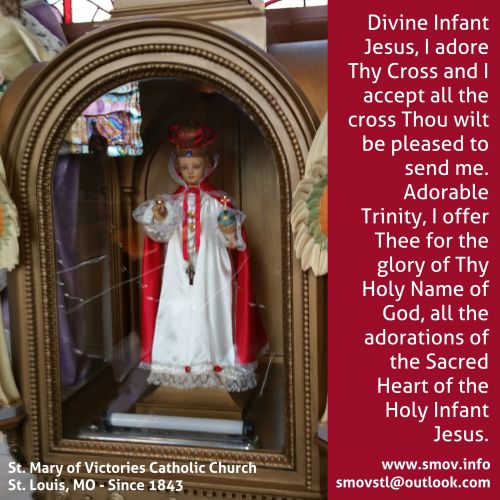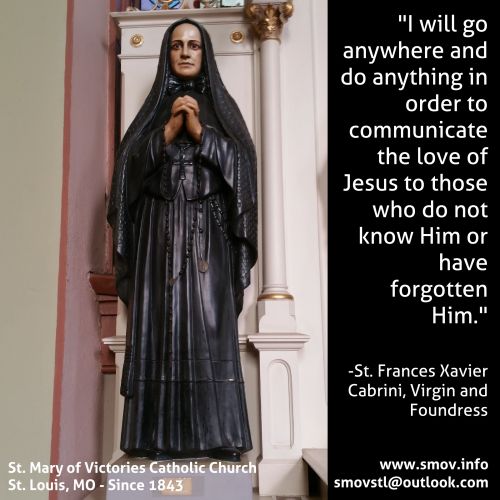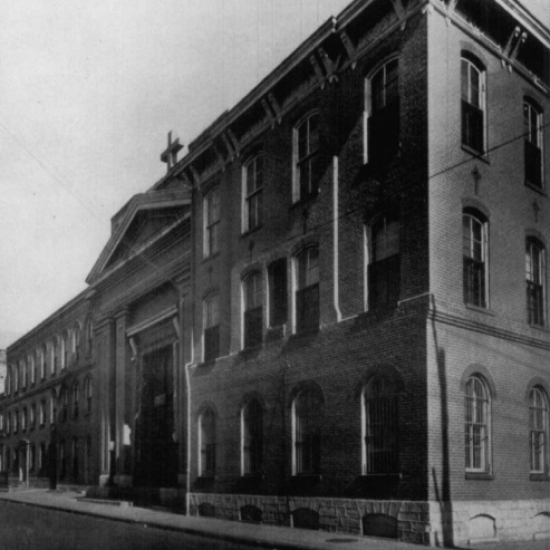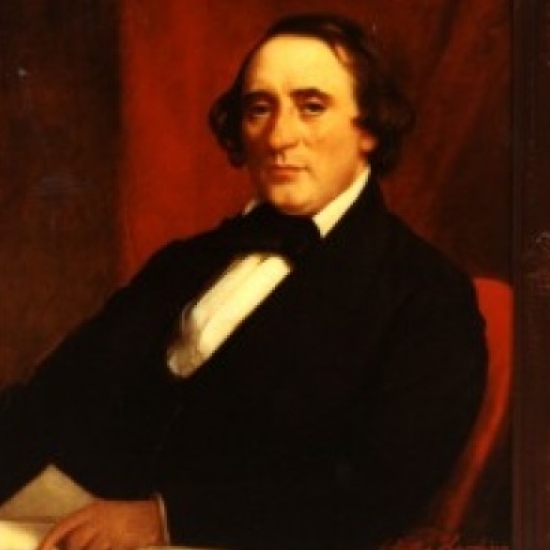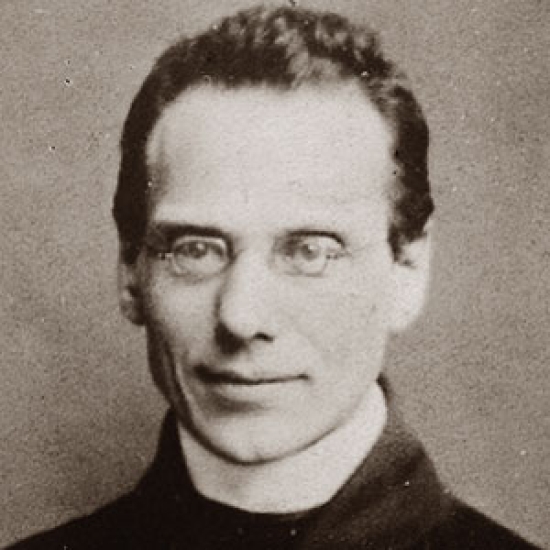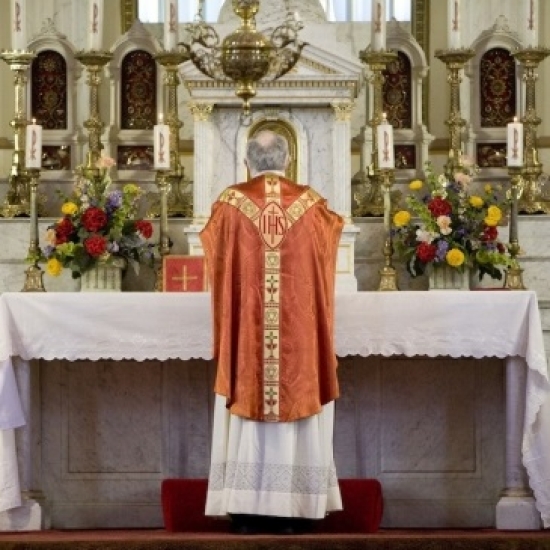1 September 2019, 22nd Sunday in Ordinary Time (Year C)
Introit: Miserere
Offertory: Lord, enthroned in heavenly splendor
Communion (Years B&C): Domine memorabor
Recessional: Praise to the Holiest in the height
Mass XI, Credo III
The two phrases in the Introit antiphon are long, so we’ll break them up at the bar lines:
-
(a) Miserere mihi Domine
(b) quoniam ad te clamavi tota die -
(a) quia tu Domine suavis ac mitis es
(b) et copiosus in misericordia omnibus invocantibus te
This Introit begins like the Introit Laetabitur justus, now in the Common of a Martyr not a Bishop (EF), which in the older manuscripts opens the Mass for the feast of St. Vincent (of Zaragoza). With its minor thirds and semitones it seems to proceed from the heart of Jesus Himself. The melody wants to console, to encourage, to instill confidence. On the Friday of the 5th week of Lent, (EF: Friday after Passion Sunday), the melody for the Introit begins like today’s. At its very beginning, however, instead of an interval of a fourth it has a third; but that chant, it must be noted, belongs to the fifth mode. The spirit of this Introit Miserere is predominantly joyful. In the first half of the second phrase the presentation must obviously be more tender and cordial. According to the annotated manuscripts, (su)-avis ac mitis is to be prolonged slightly. Copiosus must be sung with all possible brilliancy. (What a deep impression copiosus must have made when it was repeated after every verse in a longer entrance procession.) One readily notes some resemblance to benigna est misericordia in the first antiphon for the blessing of the ashes on Ash Wednesday, which is filled with the same spirit; also the similarity between (Do)-mine and (misericor)-dia. The composer seemed very careful in his plan of giving the second syllable of a dactyllic word more than one note, to avoid any ungraceful angles in the melody.
This is a very expressive antiphon. The composer begins on a strong typical 8th mode motif, moving from g to c, of confidence in God’s mercy. This phrase moves a bit more quickly. In the middle of the second phrase, he uses the weak note, b, and minor thirds to express God’s tender mercy and forgiving nature (suavis ac mitis) then ascends to high f to express the soaring heights of that abundant mercy. This middle section is to be sung with a bit more care and expression. Then he ends by taking us back down from c to g, as we find ourselves grounded in our confident invoking of that same rich mercy. We return to the quicker pace of the opening section for this re-statement of our confidence.
-
Domine, memorabor justitiae tuae solius:
-
Deus, docuisti me a juventute mea
-
(a) et usque in senectam et senium,
(b) Deus, ne derelinquas me.
Let us first of all consider the middle phrase: Deus, docuisti me a juventute mea. It begins a fourth higher than the preceding note, adheres to the dominant high c, has a group of two and of three notes over me-(a) and the preceding syllable, and a pleasant harmony. It is the soul's grateful expression for the loving care that God has taken of it for all of life. But we know this most profoundly in Holy Communion, when we receive Him whose thanksgiving is of infinite value.
The first and last phrases are almost heavy, depressing. This results from the frequent descent of the melody to low d, the accentuation of the tonic g, and the repetition of the same formula: Memorabor=senectam, justitiae=senium, and then the same motif a fourth higher over solius=(de)-re-(linquas). The thought of God's justice may become extremely oppressive, as well as the prospect of lonely old age. And the repetition of senectam and senium compels us to think of all the unwelcome concomitants of old age. However great the similarity of the first and third phrases may be, still the latter shows an evident development, an increase of feeling, an intensely prayerful attitude. Usque must be sung slowly and impressively; so also Deus with the pressus, which corresponds to the single note in the first phrase over tuae; then the expansion of fga over so-(lius), corresponding to the twofold f a c over ne de-(relinquas). This third phrase should have a more tender ring than the first. Even though the thought of God's justice is overwhelming, still it is not entirely devoid of consolation. This melody is not an outgrowth of anguish or despondency. In His justice, God places no greater burden on our shoulders than we are able to bear. We often judge harshly, because frequently we overlook the circumstances which lessen the grievousness of the offense. God knows all things; He, and He alone, knows the true motives behind every act. His justice, moreover, is always tempered with mercy.
